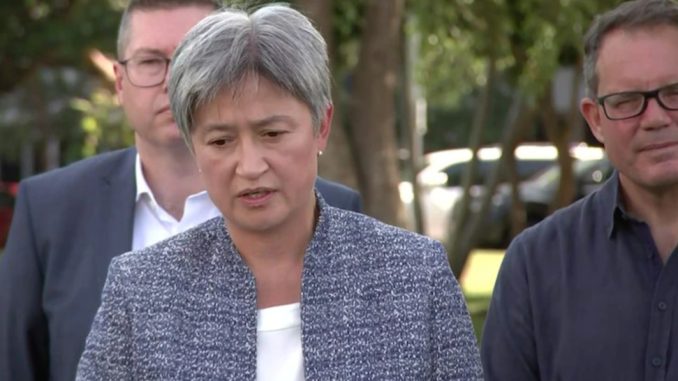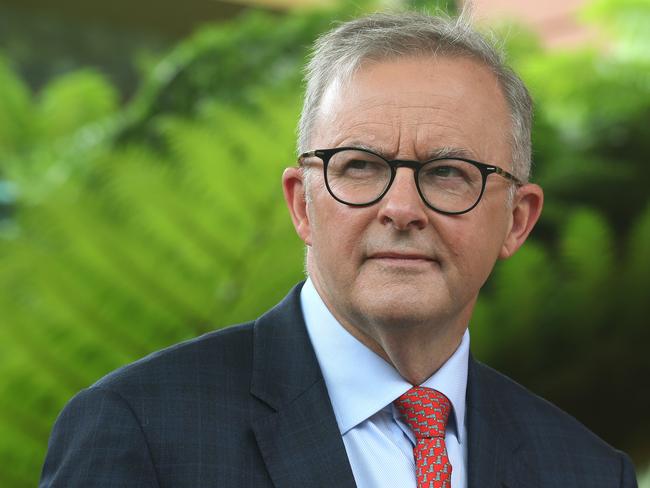
Labor has promised to boost foreign aid to the Pacific by more than half a billion dollars as part of its broader election package to bolster Australia’s diplomatic and strategic links in the region.
Key points:
- Labor has committed to increasing aid to the Pacific to counter China’s rising influence in the region
- Half a billion dollars more would be spent to establish climate, defence training and visa programs in the Pacific-
- The PM says elements of the plan show Labor does not understand challenges in the region
- The commitment will see Australian overseas development assistance to the Pacific swell even further from the record $1.85 billion due to hit next financial year.
Shadow Foreign Minister Penny Wong said the boost of $525 million over four years would help “address the decade worth of development gains that have been lost due to the pandemic and Coalition cuts.”
“We will work with our Pacific family to support specific projects that deliver real change in areas of health, economic growth, education, climate change adaptation and resilience,” she told reporters in Darwin.
But Labor has not yet revealed its full foreign aid policy for countries outside the Pacific, saying it will reveal that figure before the federal election.
Aid groups have welcomed the promise but have urged the ALP to boost funding to other countries around the globe.
Matt Tinkler from Save The Children said the pledge was “heartening” but stressed the ALP should also ramp up spending in the Middle East and Ukraine.
“These commitments should not come at the expense of vulnerable children facing conflict and crisis elsewhere in the world, such as in Afghanistan, Syria, Yemen and Ukraine,” he said.
The aid pledge is one part of a more wide-ranging policy package designed to burnish Labor’s foreign policy credentials and highlight its attacks on the Coalition over the security pact struck by China and Solomon Islands.
The ALP has also promised to develop a new climate infrastructure partnership for the Pacific — although details are so far scant — and overhaul Australia’s Pacific labour mobility schemes, including by effectively abolishing the Nationals plan for a standalone agriculture visa and wrapping it into existing Pacific programs.

It also pledged to reinvigorate parliamentary exchange programs with Pacific Islands countries and establish a new “Pacific Engagement visa” designed to boost permanent migration to Australia from the region.
The new visa would allow 3,000 people from the region to migrate to Australia annually.
Stephen Howes from the Australian National University said the announcement was both “unique” and “very significant” and would set an important new precedent if implemented.
“So far all the labour mobility schemes for the Pacific have been temporary… but this is different in that it allows Pacific Islanders to move to Australia with their families and stay here,” he said.
Professor Howes said the policy seemed aimed at building up Australia’s Pacific diaspora, which remains very small.
“While 3,000 might not sound like a lot those numbers will accumulate – I think you could quickly see this become more important than the temporary schemes.”
Senator Wong said the package would “restore Australia’s place as the partner of choice in the Pacific” and “leverage Australia’s strengths to build diplomatic and strategic capital in the region.”
“We will leverage Australia’s strength, we understand we are in a time of competition so you have to look to your competitive advantage, the power of Australia’s voice, the power of our proximity, the power of our people-to-people relationships and the power of our economic relationships.”
It comes on top of the other elements announced by Labor overnight, including a plan to boost the ABC’s budget to broadcast into the region and set up a new training program for Pacific Island security and military personnel.
The Coalition has scoffed at the announcements, with Foreign Minister Marise Payne saying the announcement “lacked substance” and simply aped existing government programs implemented by the federal government.
“It seems to be a list of continuations, carbon copies and cosmetic changes” she told journalists in Sydney.
Prime Minister Scott Morrison also took aim at Labor’s plan to boost funding for the ABC in the Pacific, suggesting it would have little impact on key geostrategic contests in the region.
“They think the way to solve the problem with the Solomon Islands is to send in the ABC,” Mr Morrison told 2GB.
“I mean, it’s farcical when their answer to solving the Solomon Islands program is to have Q&A in Honiara.
“I don’t think that’s a true reflection or an understanding of the challenges that we face. No Australian government has stood up more firmly to the Chinese government’s coercion of our region and Australia and our government will keep doing that.”

